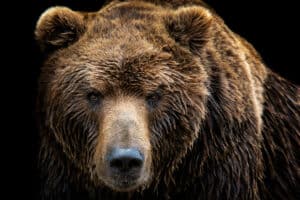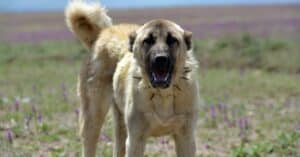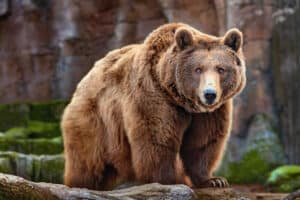New Jersey is a Mid-Atlantic state with a relatively small but thriving population of black bears. In recent decades, this population has expanded into every county. The state is also known for the impressive size of its black bear residents. Read on to discover the largest bear ever caught in New Jersey.
The Largest Bear Ever Caught In New Jersey
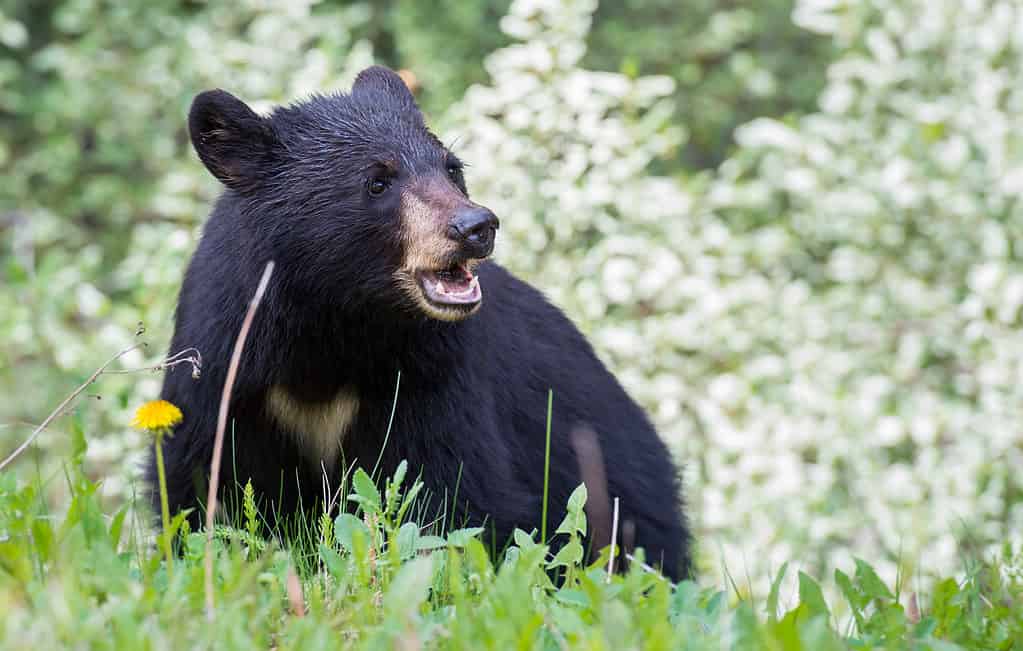
The largest black bear ever caught weighed 829 pounds!
©Ghost Bear/Shutterstock.com
The largest bear ever caught in New Jersey is also one of the largest black bears ever caught across North America. Hunter Bruce Headley, hoping to shoot a deer at the time, brought down the bear when he saw it from his deer stand. Its live weight came to a whopping 829 pounds. Headley and his helpers had to cut a path through the brush using a chainsaw to get the massive carcass out of the woods. He shot the bear on December 9, 2011, in Jefferson Township.
Another New Jersey hunter, Jeff Melillo, recently set a record for the largest black bear ever killed in North America with a bow and arrow. According to the Pope and Young Club, an organization dedicated to bowhunting and conservation, Melillo’s bear weighed 700 pounds with a skull measuring 23-5/16 inches. This was slightly greater than the previous record from 1993, which featured a bear with a head measuring 23-3/16 inches. Melillo shot the bear on October 14, 2019, in Morris County.
Where Is Jefferson Township, New Jersey Located On A Map?
Jefferson Township is in the northwest corner of Morris County. Jefferson County is between Sparta Township and Rockaway Township and near Lake Hopatcong. Route 15 runs through Jefferson to Sparta. New Jersey is located in the Mid-Atlantic region of the United States, on the east coast, bordered by Delaware to the south, Pennsylvania and the Delaware River to the west, New York to the north and east, and the Atlantic Ocean to the east.
New Jersey Bear Types And Appearance
The only bear species in New Jersey is the American black bear (Ursus americanus). Adult male black bears in the state average 400 pounds, though they can weigh anywhere from 150 to over 600 pounds. Females are smaller, weighing an average of 175 pounds. However, their weight ranges between 150-400 pounds. Black bears stand about three feet at the shoulder and five to seven feet tall on their hind paws.
Black bears come in many colors or “phases,” including black, brown, cinnamon, blonde, greyish-blue, and white. However, aside from one confirmed case of a cinnamon-colored bear, most individuals in New Jersey are black with brown muzzles. About 15% of bears in the state have a white chest blaze.
Black Bear Habitat
Black bears are widespread throughout New Jersey, with confirmed sightings in all 21 counties. Since the 1980s, the species has spread from the forested northwestern regions of the state toward the south and east. This is partly a result of agricultural land giving way to mature forests, which has increased available habitats. As black bears have spread throughout the state, human-bear interactions have become more common.
How Many Black Bears Are There In New Jersey?
Currently, there are approximately 3,000 black bears in New Jersey. The number of bears has increased over the past years due to habitat expansion and an influx of bears from Pennsylvania and New York. In addition to this, bears in New Jersey have unusually high reproductive rates, including some of the nation’s largest litters. The species’ protected status under the New Jersey Department of Environmental Protection (NJDEP) has also allowed it to recover and flourish.
Is It Legal To Hunt Bears In New Jersey?
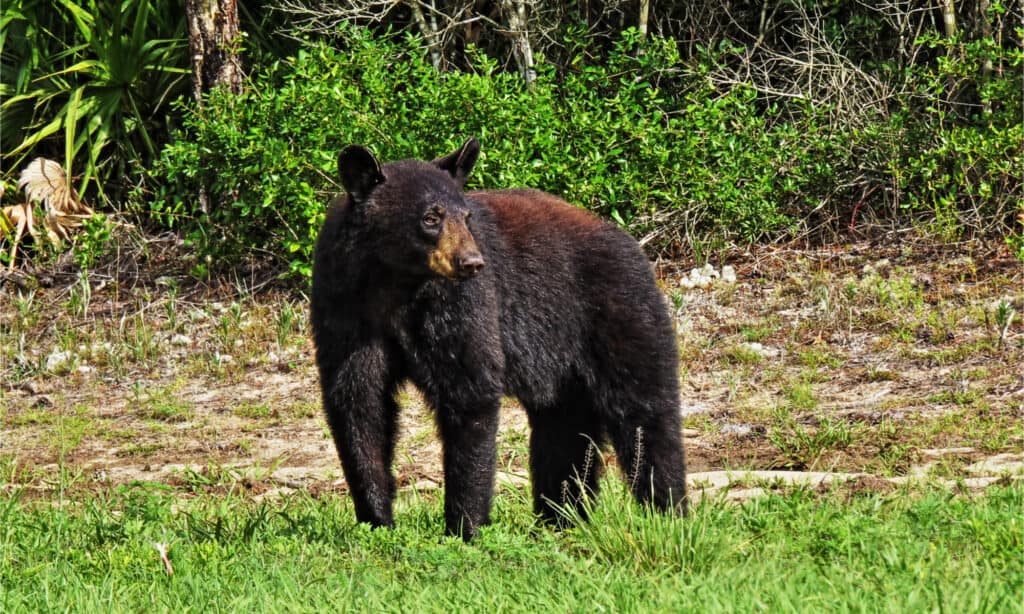
Black bears pose the greatest risk when on the hunt.
©Roger Epps/Shutterstock.com
As of 2022, hunting black bears in New Jersey is legal with a license and in accordance with strict regulations. The 2022 season came about when the state reversed its 2021 decision to ban bear hunting. The new limited bear hunting season came in response to increasing reports of bear aggression and proceeded despite pushback from activists.
The year 2021 was not the first time the state banned black bear hunting. In 1953, the New Jersey Fish and Game Council officially afforded protected status to bears. Although their status still permitted limited hunting, the Council ended bear hunts in 1971. This was based on recommendations from Fish and Wildlife biologists.
For more information on bear hunting in New Jersey, see NJDEP Fish and Wildlife’s bear hunting season webpage.
Are Black Bears Dangerous?
Black bears kill fewer than one person a year in North America. However, they are still wild animals and can be unpredictable. They pose the greatest risk when on the hunt. Sometimes, they can smell food from more than two miles away. They also can remember where they found a meal previously, which motivates them to return to the source.
Accessible food sources include bird seed, pet food, unsecured garbage bins, and dirty barbeque grills. Never feed or approach a black bear, no matter how tame it appears. When habituated, they may become bold and aggressive.
Conclusion
For various resources on living with black bears in your area, check out the NJDEP Fish and Wildlife website.
The photo featured at the top of this post is © Jim Cumming/Shutterstock.com
Thank you for reading! Have some feedback for us? Contact the AZ Animals editorial team.



